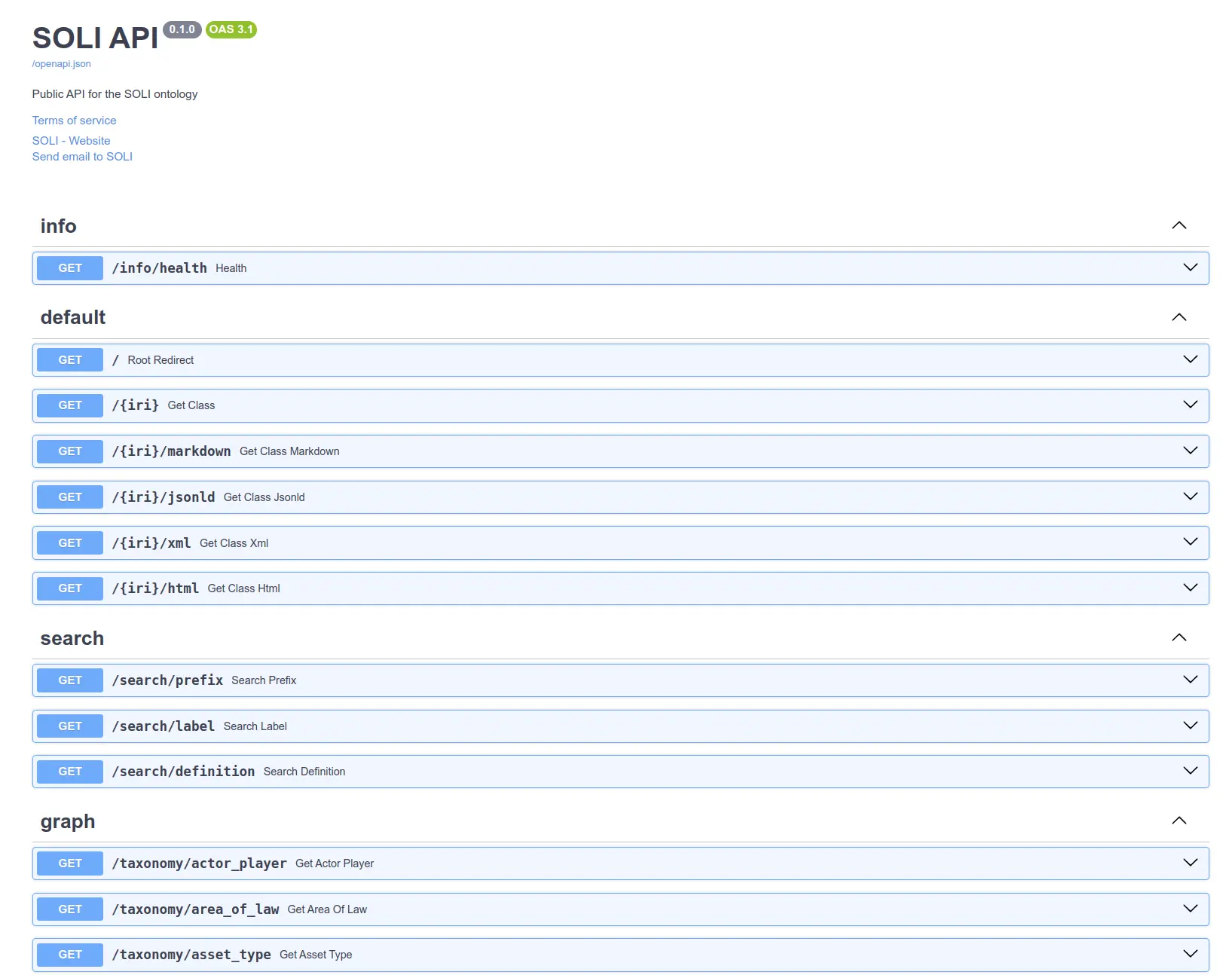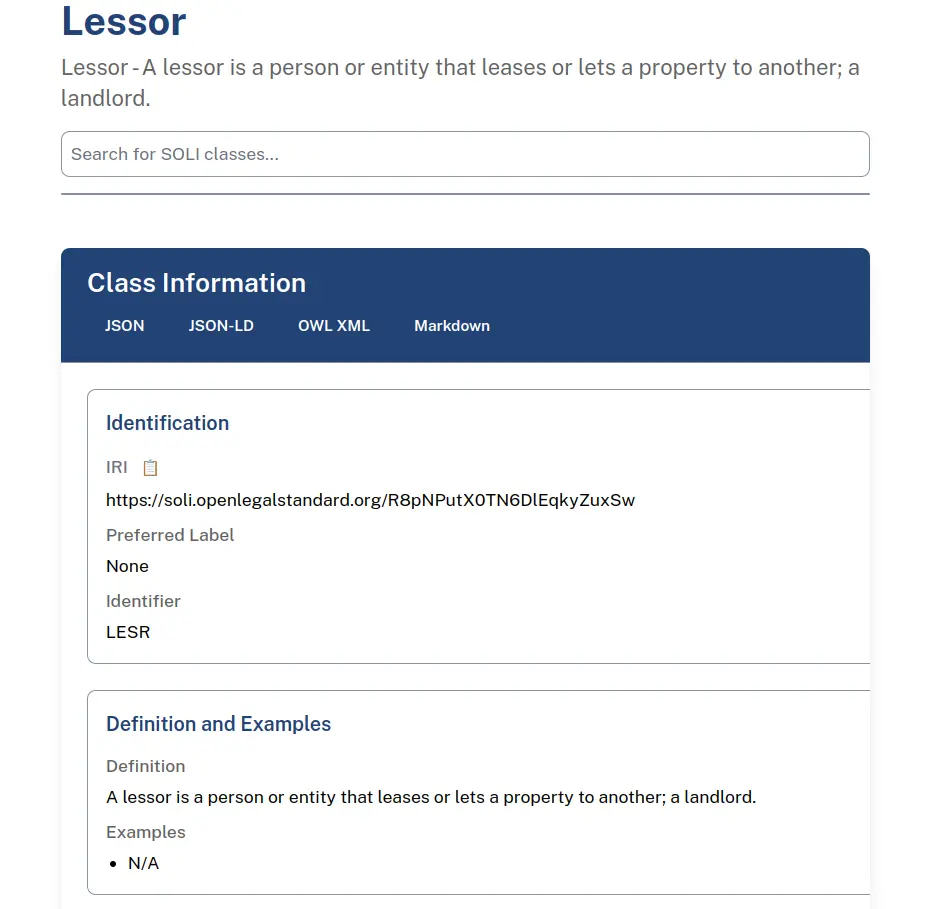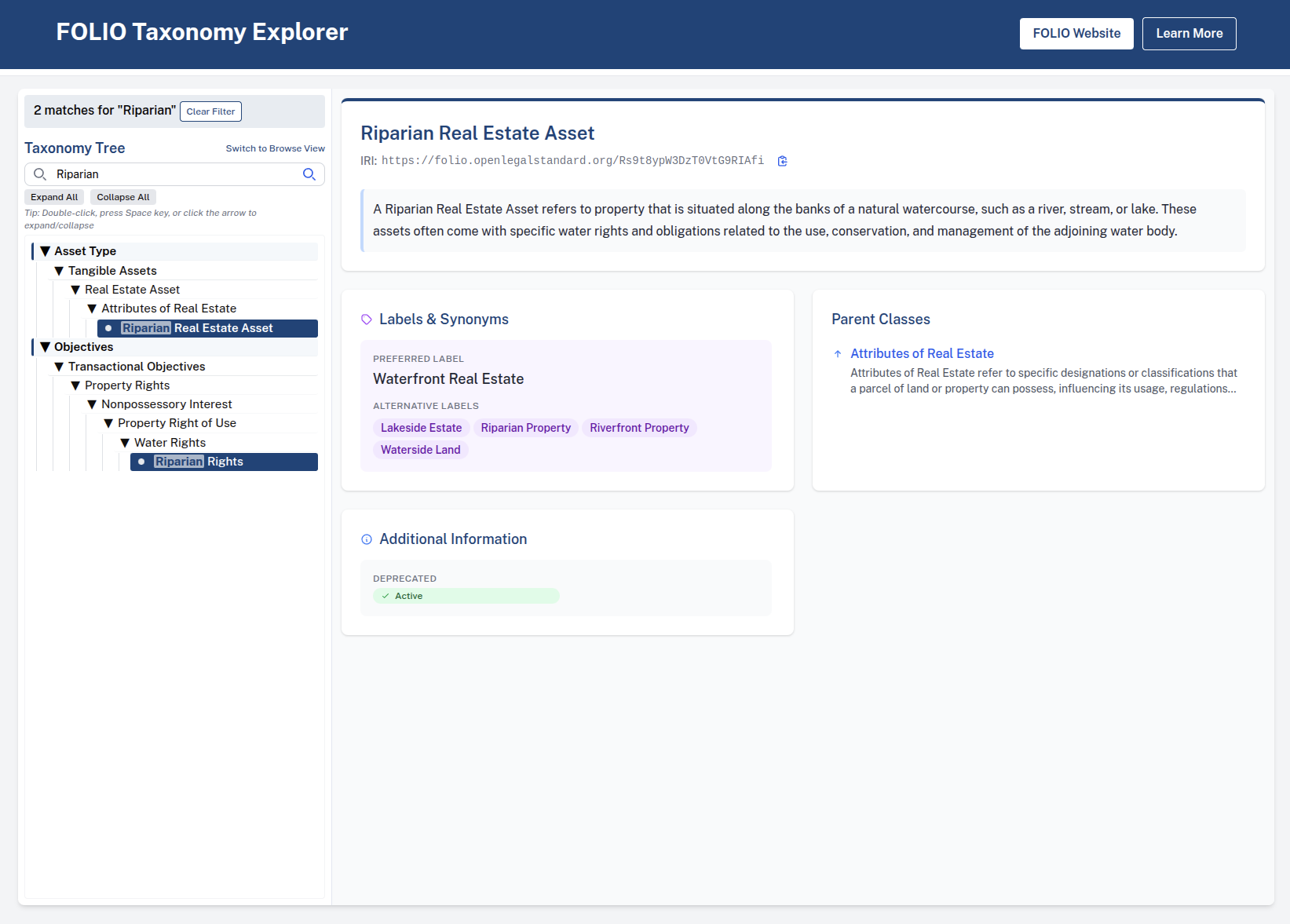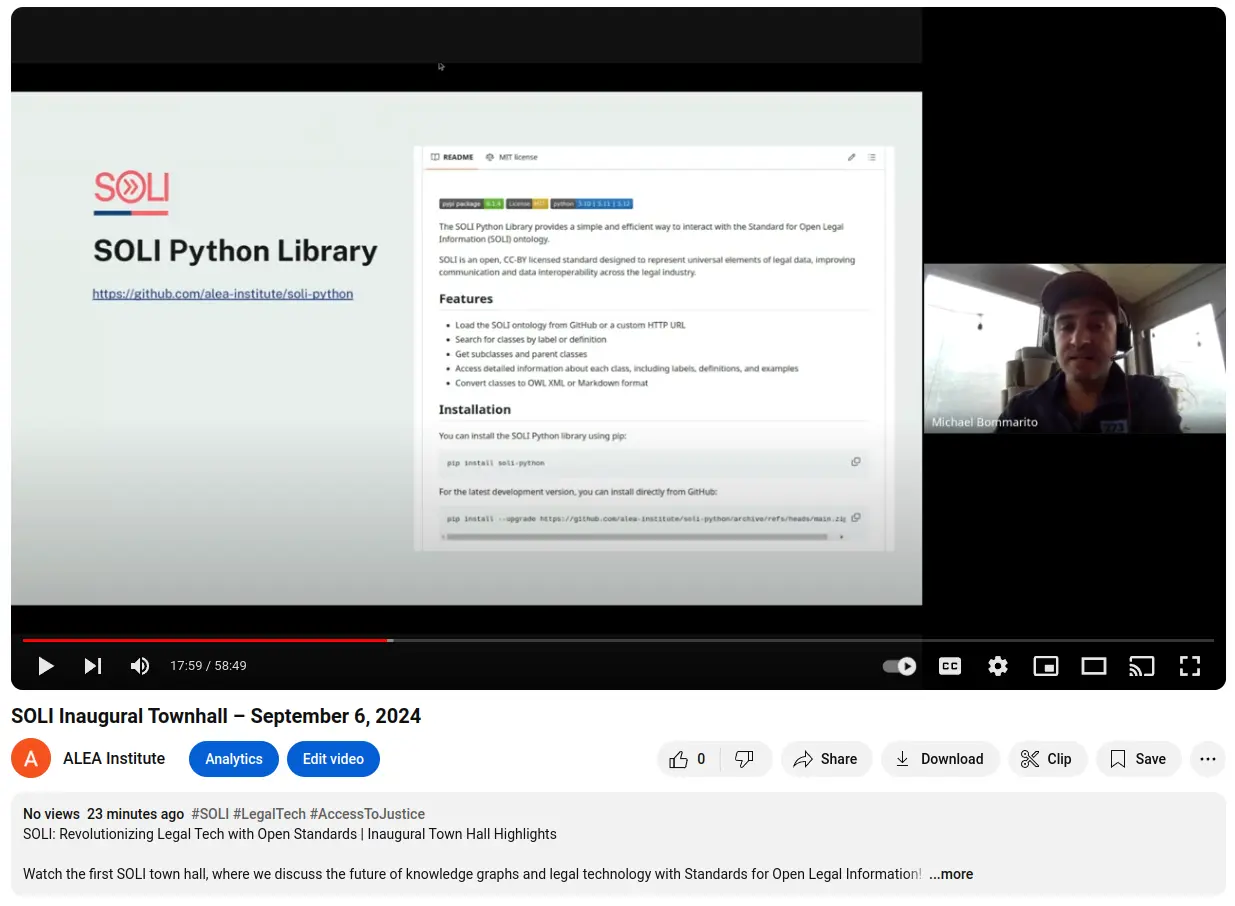· announcement · 3 min read
Announcing the FOLIO API and Python Library
New resources to integrate the Federated Open Legal Information Ontology into your projects.

We are excited to announce the release of two new MIT-licensed resources for developers: the FOLIO API and the FOLIO Python Library.
FOLIO API
The FOLIO API provides a robust and efficient way to interact with the FOLIO ontology over HTTPS. This RESTful API enables seamless integration of FOLIO into various applications and workflows, facilitating access to our comprehensive legal information standard.
Key features of the FOLIO API include:
- Access to the entire FOLIO ontology
- Search functionality for classes by label or definition
- Retrieval of detailed class information
- Multiple output formats including JSON, JSON-LD, OWL XML, and Markdown
- CORS-enabled for cross-origin requests in web applications
- Open and free to use without authentication, API keys, or rate limits
For more information and to start using the API, visit our FOLIO API documentation page.
FOLIO API - Basic UI
In addition to machine-readable formats, the FOLIO API also includes a basic UI for navigating class information.
You can access this view by adding /html to the end of the class IRI. For example, to view the class with the IRI https://folio.openlegalstandard.org/R8pNPutX0TN6DlEqkyZuxSw, you would visit https://folio.openlegalstandard.org/R8pNPutX0TN6DlEqkyZuxSw/html.

FOLIO Python Library
The FOLIO Python Library is a powerful tool that allows Python developers to easily integrate FOLIO into their projects. This library provides a simple and intuitive interface for working with the FOLIO ontology, enabling efficient data manipulation and analysis in the legal domain.
Key features of the FOLIO Python Library include:
- Load the FOLIO ontology from GitHub or a custom HTTP URL
- Conveniently access class information, including RDF(S), SKOS, and OWL properties
- Search for classes by label or definition
- Traverse taxonomy relationships like parent/ancestor and child/descendant classes
- Convert classes to JSON, JSON-LD, OWL XML, or Markdown format
To get started with the FOLIO Python Library, visit our FOLIO Python Library documentation page.
Getting Started
Both the FOLIO API and Python Library are designed to be developer-friendly and easy to integrate into existing projects. Here’s a quick example of how you can use the Python Library to search for a class:
from folio import FOLIO
# Initialize the FOLIO client
folio = FOLIO()
# Search for a class by label
result, score = folio.search_by_label("southern district new york")[0]
print(f"{result.iri} (Score: {score})")
print(f"Preferred Label: {result.preferred_label}")
print(f"Synonyms: {result.alternative_labels}")
print(f"Parents: {[folio[c].label for c in result.sub_class_of]}")Community and Support
We encourage developers to explore these new resources and provide feedback. If you encounter any issues or have questions, please don’t hesitate to:
- Open an issue on the FOLIO API GitHub repository or FOLIO Python Library GitHub repository
- Start a discussion on our FOLIO community forum
Your input is valuable in helping us improve and expand these tools to better serve the legal tech community.
Future Development
The release of the FOLIO API and Python Library marks an important milestone in making FOLIO more accessible and useful for developers. We are committed to continually improving and expanding these resources based on community feedback and evolving needs in the legal tech landscape.
Stay tuned for future updates, including additional language bindings, enhanced features, and expanded documentation.
We’re excited to see how developers will leverage these new tools to create innovative solutions in the legal domain. Happy coding!

